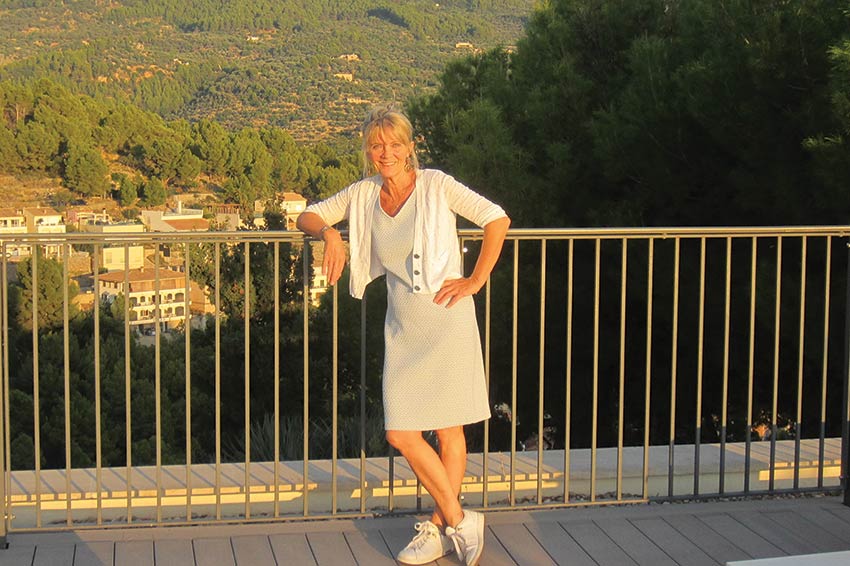October is Breast Cancer Awareness month and a very poignant month in the year for me. Twenty-five years ago, almost to the day, I walked into a hospital consultancy room with few cares in the world and walked out with a diagnosis of breast cancer. However, here I am a quarter of a century later, able to share my cancer story as a survivor with others in the knowledge that there are positive outcomes and there can be hope for the future.
I was thirty-seven years old with two young children and a husband working abroad when I was diagnosed. It was never going to be easy, but I am eternally grateful for the support I received from everyone who helped me along the way through surgery, radiotherapy, chemotherapy, hormone therapy, etc.
I am only human and there are times when I ask myself why I am still here while some of my friends, who had treatment alongside me, are not. There is no curative answer to that, but I know that those friends would be encouraging me to speak out as honestly as I can about my experiences, in the hope of helping others. So here are a few reflections that I would like to offer based on my own cancer ‘journey’.
Firstly, I was fortunate that I visited my doctor as soon as I detected a change in my breast. It didn’t appear to be anything suspicious – just a small lump, hardly detectable, but had I not taken action when I did, the outcome might have been very different. The lesson is – be sensible: examine yourself each month, and if there is a change then have it looked at. Chances are there is nothing to worry about, but better to be safe than sorry.
If you are called back for further consultation, then take someone with you. It might seem obvious, but apart from giving moral support, another person listens with different ears and retains information that can pass you by. Taking written notes is also valuable for referring to afterwards.

Lynda Tavakoli has been a guest speaker at a number of International Cancer Conferences and has seen her articles about breast cancer published widely in Ireland, the UK and abroad.
If you do need treatment, in whatever form, try to accept that there are times when you will feel awful, both physically and emotionally. As a survivor, I can say there is not a thing wrong with admitting this. For most people, those feelings will pass, but having a relative, friend or counsellor, who will listen on those bad days, is important. I had counselling myself and valued it greatly.
When treatment comes to an end, it’s a good idea to either join a support group or volunteer with a charity. I became involved with Action Cancer, a Northern Ireland based charity offering cancer services to men and women. It was a really rewarding and positive time for me, as I felt like I was giving something back.
For those presently undergoing treatment, as a survivor, I honestly feel a real sense of optimism for the future. Cancer may have arrived as an unwelcome visitor in my life, but it has taught me to appreciate my daily blessings, and for that, I will always be grateful.
